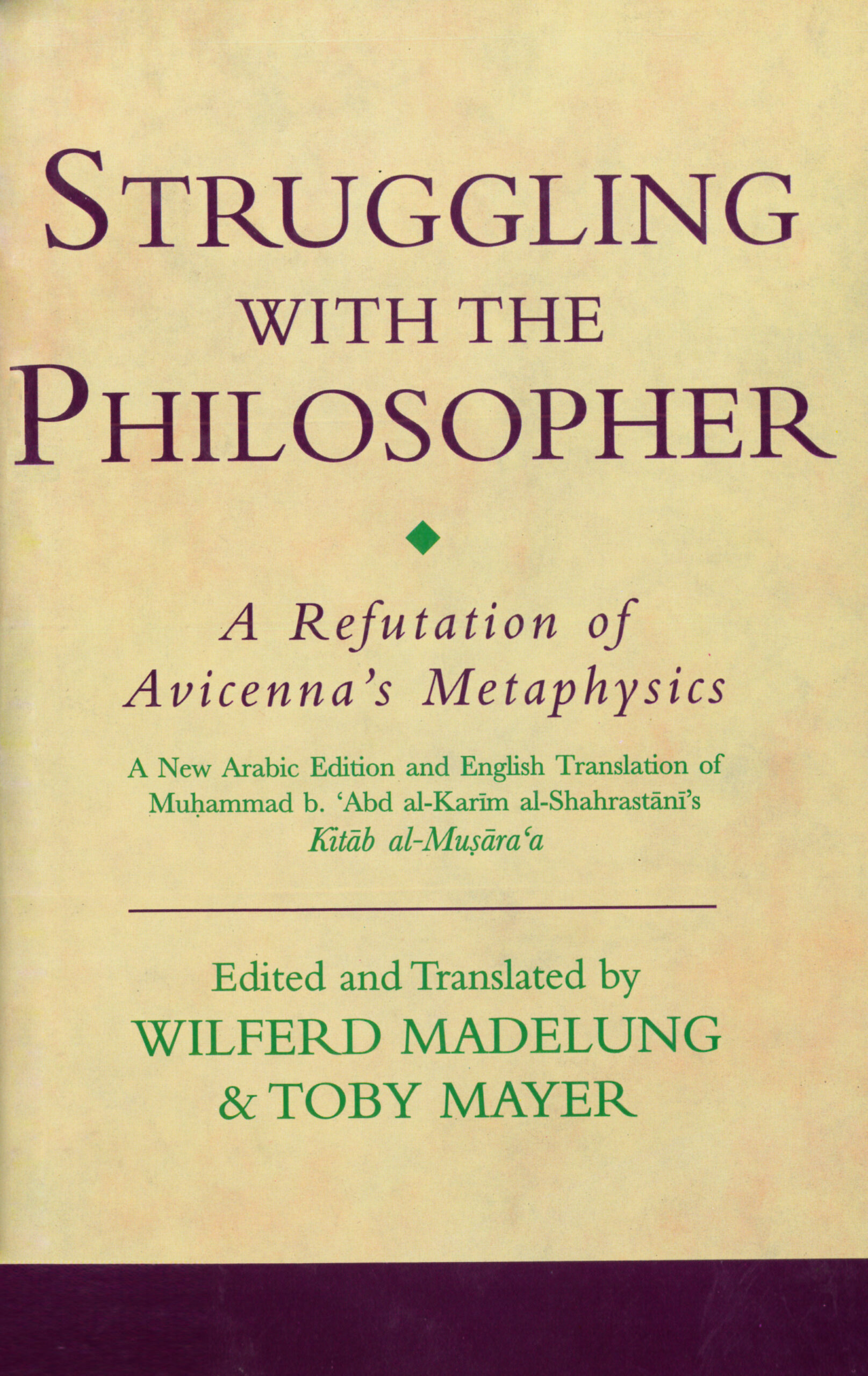One of the most learned and enigmatic scholars of medieval Islam, Muḥammad b. ʿAbd al-Karīm al-Shahrastānī (d. 548/1153) is best known for his comprehensive survey of religions, sects and schools of philosophy, the Kitāb al-Milal wa’l-niḥal, and as one of the leading exponents of Sunni theology in its Ash‘arī tradition. A different and lesser-known aspect of al-Shahrastānī’s religious thought is that some of his works reflect definite Shi‘i and specifically Isma‘ili perspectives. One of these is the Kitāb al-Muṣāraʿā (Struggling with the Philosopher), which is published here in Arabic with an English translation for the first time.
In this work, al-Shahrastānī gives a detailed critique of the metaphysics of the great Persian philosopher Avicenna (Ibn Sīnā). The greater part of his ‘intellectual wrestling match’ (muṣāraʿā) is devoted to refuting Avicenna’s interpretation of the ‘Necessary Being’ (wājib al-wujūd) which, he argues, compromises the absolute transcendence of God. For al-Shahrastānī, God is beyond human comprehension and above all opposites such as existence and non-existence, unity and multiplicity, good and evil, or truth and falsehood. There is compelling evidence that this conception of God, which al-Shahrastānī believed was derived from prophetic precepts, is closely associated with that of Isma‘ilism.
That the Kitāb al-Muṣāraʿā was written by one of the most authoritative voices of Ash‘arism, who was at the same time inclined to Isma‘iili views, suggests the rich diversity and eclecticism that characterised intellectual discourse in medieval Islam. In his Introduction to the text, Wilferd Madelung commends al-Shahrastānī’s treatise for its coherent and distinctive philosophical vision, informed by a broad spiritual perspective.
The Kitāb al-Muṣāraʿā is an important document of Islamic intellectual history, illustrating the reaction against Avicennism among Muslim theologians in the sixth/twelfth century. As such, it is essential reading and a reference text for students of Islamic studies and scholars interested in the medieval Islamic world.
Introduction: Al–Shahrastani, Ismaʿilism and Philosophy
Note on the Translation
Kitāb al-Muṣʿaraʿa (English Text)
The First Issue: On the Enumeration of the Subdivisions of Existence
The Second Issue: On the Existence of the Necessary of Existence
The Third Issue: On the Unity of the Necessary of Existence
The Fourth Issue: On the Knowledge of the Necessary of Existence and its Relationship with the Universal and Particular
The Fifth Issue: On the Incipience of the World
Bibliography
Index to the English Text
Kitāb al-Muṣāraʿa (Arabic Text)
Wilferd Madelung was for twenty years the Laudian Professor of Arabic at the University of Oxford and is at present affiliated with The Institute of Ismaili Studies as Senior Research Fellow. Among his publications are Religious Schools and Sects in Medieval Islam (1985), Religious Trends in Early Islamic Iran (1988), The Succession to Muḥammad: A Study of the Early Caliphate (1997) and, together with Paul E. Walker, An Ismaili Heresiography (1998) and The Advent of the FatimidsMajor Muslim dynasty of Ismaili caliphs in North Africa (from 909) and later in Egypt (973–1171) More (2000).
Toby Mayer is a specialist in medieval Arabic thought and has recently completed his doctoral these on the metaphysics of Avicenna for the University of Oxford. As a Research Associate at The Institute of Ismaili Studies, he is currently preparing a critical edition and English translation of Muḥammad al-Shahrastānī’s commentary on the Qur’anMuslims believe that the Holy Qur’an contains divine revelations to the Prophet Muhammed received in Mecca and Medina over a period of 23 years in the early 7th century CE. More, Mafātīḥ al-asrār wa maṣābīḥ al-abrār (The Unveiling of the Secrets).

